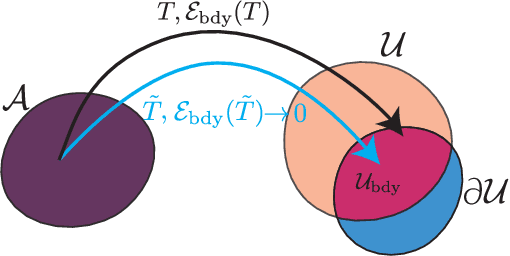Nadim Saad
Guiding continuous operator learning through Physics-based boundary constraints
Dec 14, 2022



Abstract:Boundary conditions (BCs) are important groups of physics-enforced constraints that are necessary for solutions of Partial Differential Equations (PDEs) to satisfy at specific spatial locations. These constraints carry important physical meaning, and guarantee the existence and the uniqueness of the PDE solution. Current neural-network based approaches that aim to solve PDEs rely only on training data to help the model learn BCs implicitly. There is no guarantee of BC satisfaction by these models during evaluation. In this work, we propose Boundary enforcing Operator Network (BOON) that enables the BC satisfaction of neural operators by making structural changes to the operator kernel. We provide our refinement procedure, and demonstrate the satisfaction of physics-based BCs, e.g. Dirichlet, Neumann, and periodic by the solutions obtained by BOON. Numerical experiments based on multiple PDEs with a wide variety of applications indicate that the proposed approach ensures satisfaction of BCs, and leads to more accurate solutions over the entire domain. The proposed correction method exhibits a (2X-20X) improvement over a given operator model in relative $L^2$ error (0.000084 relative $L^2$ error for Burgers' equation).
Modeling Advection on Directed Graphs using Matérn Gaussian Processes for Traffic Flow
Dec 14, 2021



Abstract:The transport of traffic flow can be modeled by the advection equation. Finite difference and finite volumes methods have been used to numerically solve this hyperbolic equation on a mesh. Advection has also been modeled discretely on directed graphs using the graph advection operator [4, 18]. In this paper, we first show that we can reformulate this graph advection operator as a finite difference scheme. We then propose the Directed Graph Advection Mat\'ern Gaussian Process (DGAMGP) model that incorporates the dynamics of this graph advection operator into the kernel of a trainable Mat\'ern Gaussian Process to effectively model traffic flow and its uncertainty as an advective process on a directed graph.
 Add to Chrome
Add to Chrome Add to Firefox
Add to Firefox Add to Edge
Add to Edge